‘But you’re taking the case?’
‘I must. But I shall be very careful, do not worry about that. I want Guy to see the boy. But first I must visit him myself.’
‘At the Bedlam?’
I sighed. ‘Yes, tomorrow.’
‘Can I come?’
‘No. I should go alone. But thank you.’
‘Pity,’ Barak said. ‘I’d like to see if it’s true the groans and shrieks can be heard across the streets, making folk scurry by.’
LATER THAT MORNING the rain eased off. The sun came out and the weather grew clear and cold again. My meeting with the Kites had given me much food for thought and I decided to go for a walk. Everything seemed sharper in the clear air; the naked branches of the trees were outlined against a blue sky, patches of snow were still visible in the corners of the bare brown fields behind the houses. I walked through the nearby suburbs, along Holborn and down Shoe Lane. The Palm Sunday services were under way now, and I noted as I passed how some churches had garlands on the lychgates and church doors, and greenery spread in the street outside, while others presented only their normal aspect. In one churchyard an outdoor service was taking place, a choir of white-surpliced boys singing a hymn before a garlanded cross, where three men stood dressed as prophets in long robes, with false white beards and brightly decorated headgear. I was reminded of yesterday’s play.
I remembered the guest at Roger’s table talking of apprentices disrupting a palm-laying ceremony. There were many stories of the religious divisions in London’s forest of tiny parishes: a radical vicar in one church whitewashing over ancient wall paintings and replacing them with texts from the Bible, a conservative in another insisting on the full Latin Mass. I had recently heard of radical congregants in one church talking loudly while the sacring bell sounded, causing the traditionalist priest to lose his temper and shriek ‘Heretics! Faggots! Fire!’ at them. Was it any wonder that many, like myself, stayed away from church these days? Next weekend it would be Easter, when everyone was supposed by law to take confession. In London those who failed to attend were reported to Bishop Bonner, but illness or urgent pressure of business were accepted as excuses, and I decided I would argue the latter. I could not bear the thought of confessing my sins to my parish priest, a time-server whose only principle in the doctrinal struggle was to follow the wind and preserve his position. And if I were to confess, I knew that one of my sins was a long-growing, half-buried doubt whether God existed at all. That was the paradox – the vicious struggle between papists and sacramentaries was driving many away from faith altogether. Christ said, by their fruits shall you know them, and the fruits of the faithful of both sides looked more rotten each year.
As I walked down Shoe Lane, one set of decorated church doors opened and the congregation stepped out, the service over. These were very different people from those I had seen in the churchyard, the women in dark dresses, the men’s doublets and coats all sober black, their manner severely reverent. Meaphon’s church would be like this, the congregation a tight-knit group of radicals, for some people would up sticks and move house to find a parish where the vicar agreed with their views. If Bishop Bonner were to try to enforce all the old practices on these churches there would be serious trouble, rioting even. But he was tightening his net; a new index of prohibited books had recently been published, unlicensed preachers were being arrested. And if harsh measures were successfully enforced, I thought, what then? The radicals would only go underground; already groups of them held illegal meetings in people’s houses to discuss the Bible and bolster their radical beliefs.
I was tired when I arrived back at my house in Chancery Lane, a little way up from Lincoln’s Inn. The smell of broiling fish from the kitchen where my housekeeper Joan was preparing lunch was welcome, although I looked forward to the end of Lent next week when it would be legal to eat meat again. I went into my parlour and sat down by the fire, but even my welcoming hearth could not dispel the tension I felt, not just because the case of Adam Kite had drawn me into the threatening doctrinal currents washing through the city, but because they made it hard for me to avoid awareness of my own deepening unbelief.
EARLY NEXT MORNING I set out for the Bedlam. Under my coat I wore my best robe, and I also put on my serjeant’s coif. It would do no harm to impress the warden. I confess that I was nervous at the thought of going to the asylum. I knew next to nothing of madness; I was fortunate enough never to have encountered it among my family or friends. I knew only the doctors divided the brain-sick between those suffering from mania, who often engaged in wild and frenzied behaviour, and the melancholics who withdrew from the world into sadness. Melancholy was more common, and usually less serious; I knew I had a melancholic turn of mind myself. And Adam Kite, I thought. Which is he? What is he?
The inconstant weather had turned bitter again; during the night there had been another dusting of snow, which glittered in the cold sunlight. I rode out on my good horse Genesis. I was sorry to take him from his stable but the streets were too slippery to make for easy walking and the Bedlam was on the other side of the city.
I passed under London Wall at Newgate and rode along Newgate Street to the market. Traders were setting up their stalls under the looming bulk of the abandoned church of the dissolved St Martin’s friary, a few white-coifed goodwives already looking over the produce as it was laid out. As I rode past the market I heard someone shouting. On the corner where Newgate Market met the Shambles, a man in a dark doublet, coatless despite the cold, stood on an empty box waving a large black Testament at the passers-by, who mostly averted their eyes. This must be the ranter old Ryprose had mentioned at the dinner. I looked at the man: a young fellow, his face red with passion.
The butchers in the slaughterhouses behind the Shambles had already started work. Lent would be over on Thursday and already they were killing sheep and cattle. Trails of blood were trickling from the yards to the sewer channel in the centre of the frosty street. The preacher pointed to them with his Bible. ‘So it will be for mankind in the last days of the world!’ he shouted in a deep voice. ‘Their eyeballs will melt, the skin will drop from their bones, all that will be left is their blood, deep as a horse’s bridle for two hundred miles! So it is foretold in Revelation!’ As I rode off down the Shambles I heard him cry, ‘Only turn to God, and you will know the sweet joy of his salvation!’ If the constables took him he would be in serious trouble for preaching without a licence.
Along Cheapside the blue-coated apprentices were setting up their masters’ shops for the day’s trade, erecting brightly coloured awnings, their breath steaming in the cold. Some were ordering away the beggars who had sought shelter in the doorways overnight, with kicks and blows if they did not move fast enough. A host of destitute men and women had already limped over to the Great Conduit to beg from those who came for water, huddling against each other on the steps that surrounded it like a flock of starveling crows. As I passed I looked into their pinched, chapped faces. One, an old man with a shock of grey hair, drooling and trembling, caught my eye. He held out a hand and called, ‘Help an old monk of Glastonbury, sir. They hanged my master the abbot!’ I threw a sixpence to him, and he dived for it with a sudden turn of speed, before others could.
Читать дальше
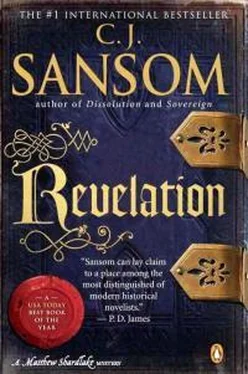
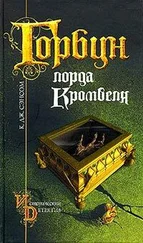

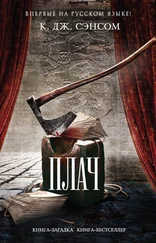


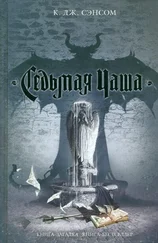
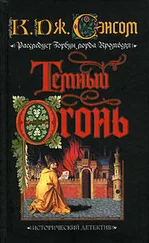
![К Сэнсом - Стенание [другой перевод]](/books/432043/k-sensom-stenanie-drugoj-perevod-thumb.webp)

